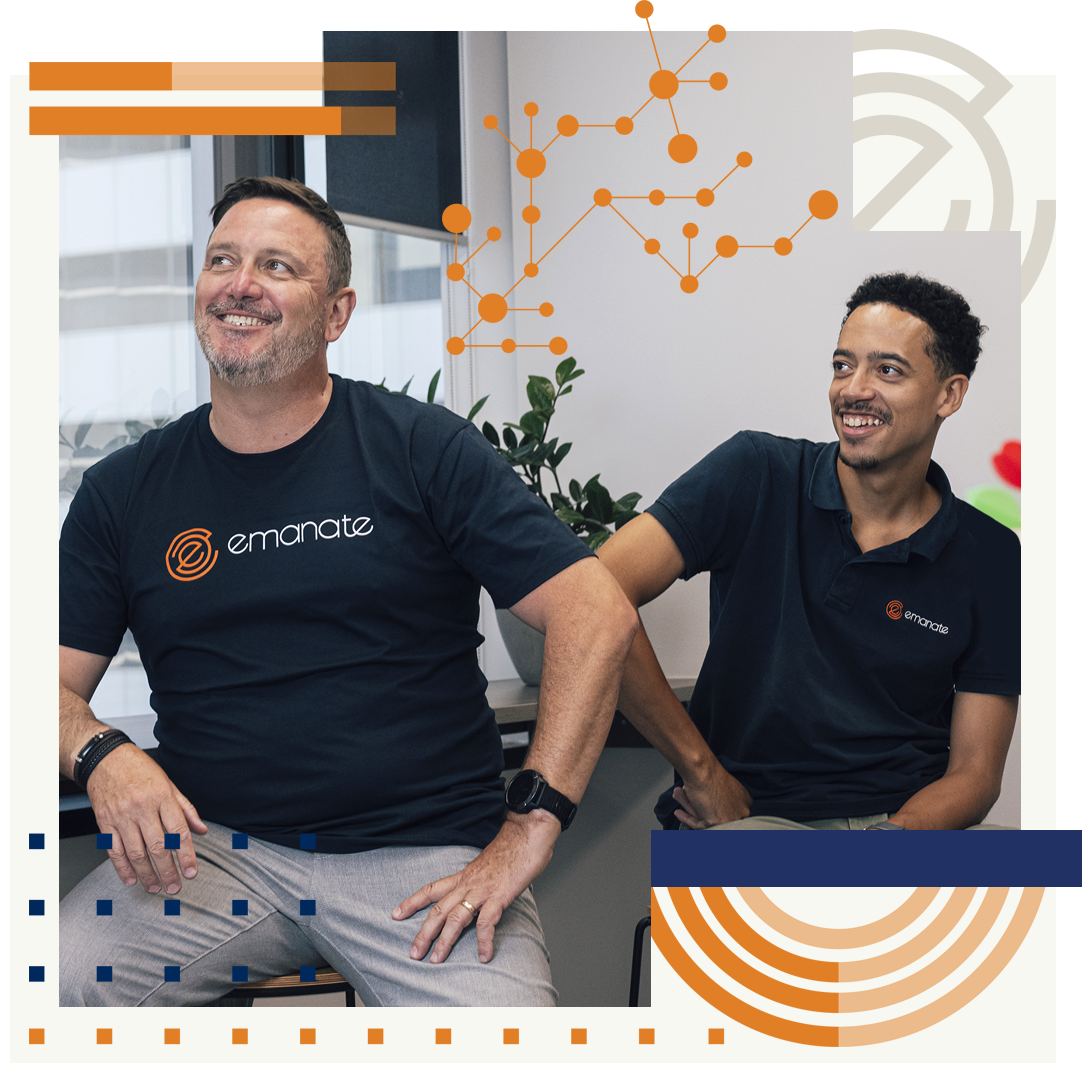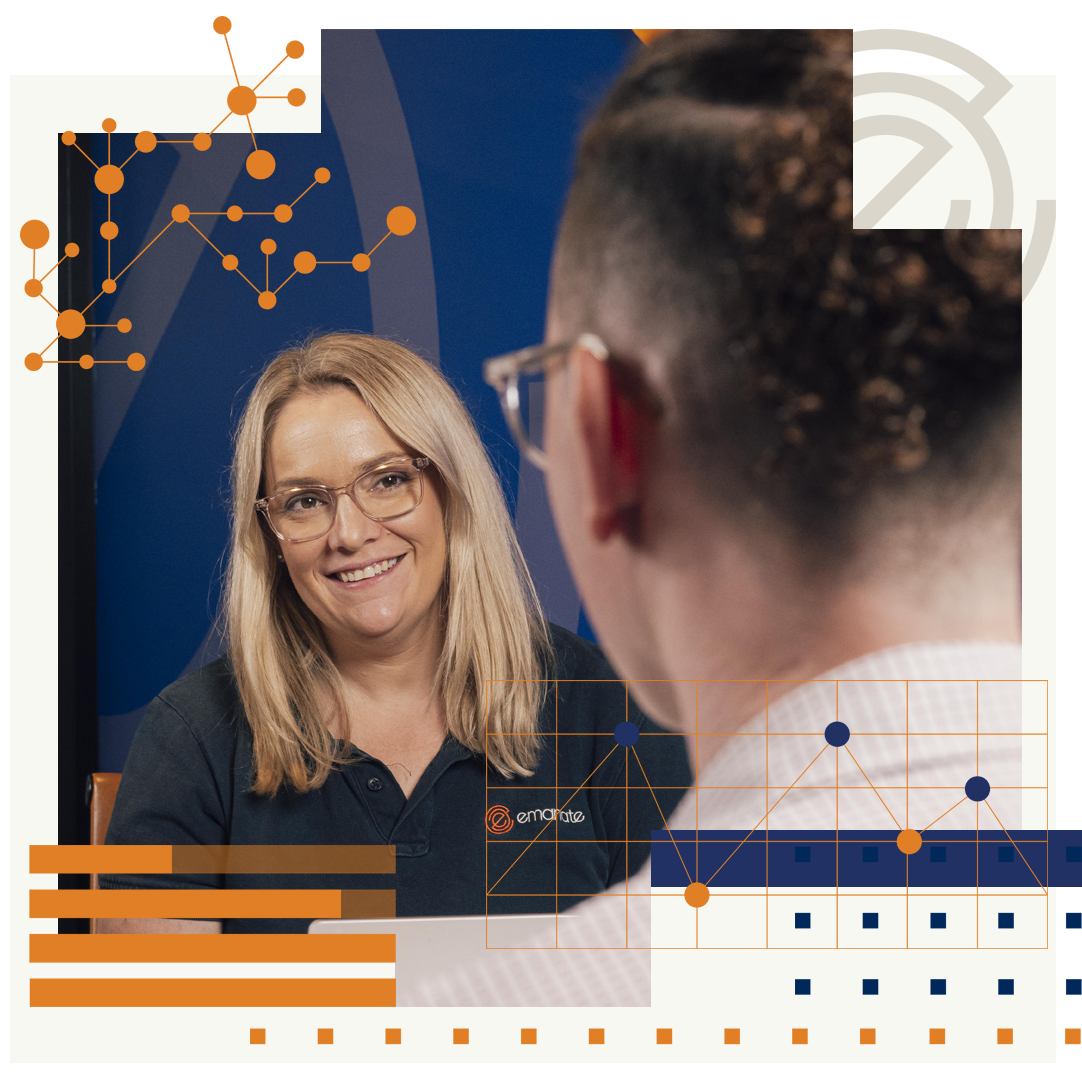Candidates
Candidates

Candidates are the lifeblood of our business.
Working from our tech hubs across Australia, we’ve been building relationships with the best tech talent from day one.
People. It’s the very root of everything we do at Emanate and we take that pretty seriously. As a job seeker, you want a recruiter that goes above and beyond, exceeds your expectations and finds you the role that meets your career goals. How? The bottom line is, it’s all about relationships. For us, that means taking our service well beyond just ‘finding you a job’ – fully immersing ourselves in your world, day in, day out. From project services and data to digital and infrastructure, our tech recruiters are true specialists in their niche, with many of us having a background in tech ourselves! And because getting to know you as a person comes first, that can only be a good thing for your career.

Candidates are the lifeblood of our business.
Working from our tech hubs across Australia, we’ve been building relationships with the best tech talent from day one.
People. It’s the very root of everything we do at Emanate and we take that pretty seriously. As a job seeker, you want a recruiter that goes above and beyond, exceeds your expectations and finds you the role that meets your career goals. How? The bottom line is, it’s all about relationships. For us, that means taking our service well beyond just ‘finding you a job’ – fully immersing ourselves in your world, day in, day out. From project services and data to digital and infrastructure, our tech recruiters are true specialists in their niche, with many of us having a background in tech ourselves! And because getting to know you as a person comes first, that can only be a good thing for your career.
Looking for a specialist technology recruitment agency?
Let’s get started. Chat to your local Emanate team for all your tech recruitment-related needs.
Looking for a specialist technology recruitment agency?
Let’s get started. Chat to your local Emanate team for all your tech recruitment-related needs.
Contractors Placed
Candidates Joined New Companies
Candidates Completed Probation
Companies We Placed With
Our Commitment To Our Candidates:
Candidates are the lifeblood of our business, without them there are no clients. At Emanate Technology we take the time to understand our candidate’s skills and motivations and coach them throughout the recruitment process to best prepare them for a successful outcome.
Emanate Technology will take time to understand the criteria that candidates use to assess new opportunities.
We won’t sit back and wait for the right opportunity to land on our desks. We’ll work with candidates to come up with a list of organisations that match their criteria and then proactively market them to those organisations.
Our Commitment To Our Candidates:
Candidates are the lifeblood of our business, without them there are no clients. At Emanate Technology we take the time to understand our candidate’s skills and motivations and coach them throughout the recruitment process to best prepare them for a successful outcome.
Emanate Technology will take time to understand the criteria that candidates use to assess new opportunities.
We won’t sit back and wait for the right opportunity to land on our desks. We’ll work with candidates to come up with a list of organisations that match their criteria and then proactively market them to those organisations.
Find Your Next Tech Career Move
Scroll through the latest IT jobs in Australia to find your next contract or permanent tech opportunity or search a specific role in your city location.
Find Your Next Tech Career Move
Scroll through the latest IT jobs in Australia to find your next contract or permanent tech opportunity or search a specific role in your city location.
How to market yourself, understand your market plus more – tips and insights for a successful career as an IT professional.
How to market yourself, understand your market plus more – tips and insights for a successful career as an IT professional.
Know Your Worth: Australian Salary & Rate Guide
When you’re preparing for a new role, working towards a promotion or undergoing your annual review, knowing your worth in the current market ensures you can make informed career decisions, negotiate fair compensation and remain competitive in the market. That’s why we’ve created a comprehensive guide that includes a breakdown of salaries and IT contracting rates in Adelaide, Brisbane, Canberra, Melbourne and Sydney.

Know Your Worth: Australian Salary & Rate Guide
When you’re preparing for a new role, working towards a promotion or undergoing your annual review, knowing your worth in the current market ensures you can make informed career decisions, negotiate fair compensation and remain competitive in the market. That’s why we’ve created a comprehensive guide that includes a breakdown of salaries and IT contracting rates in Adelaide, Brisbane, Canberra, Melbourne and Sydney.


Like A Little Bonus?
Refer a successful candidate to Emanate Technology and receive a $500 voucher.
If your mates are anything like you, we want to get to know them through our refer a friend programme. As long as they are successful in finding their next role through us, we’ll give you a little bonus to the value of $500! Find out more about the program and check out the T&Cs.

Like A Little Bonus?
Refer a successful candidate to Emanate Technology and receive a $500 voucher.
If your mates are anything like you, we want to get to know them through our refer a friend programme. As long as they are successful in finding their next role through us, we’ll give you a little bonus to the value of $500! Find out more about the program and check out the T&Cs.










